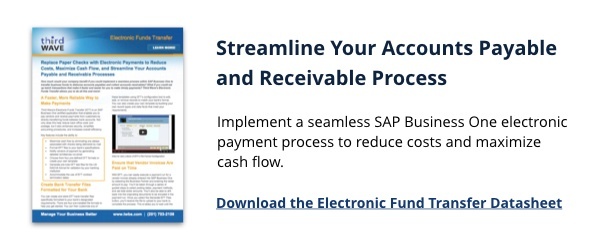
28 Experts Reveal Best Ways to Reduce Small Business Operating Costs
For many small businesses, regardless of the stage of growth, there are usually a number of standard monthly costs that always seem to dig into the business’ bottom line profits. Reducing small business operating costs can be difficult, but with the right tools in place, businesses can see significant savings.
Whether it’s vendor and supply costs, marketing and advertising costs, human resources costs, or otherwise, these costs are a pain to deal with, yet they are necessary to the fundamental operation of the business.
As a company that provides business financing to many different types of companies, Direct Capital helps Third Wave clients maximize their financial strategy for reducing small business operating costs.
To that end, we set out to learn more about effective operating cost strategy, and more specifically, what business owners can do to effectively reduce their overall operating costs. To do that, we asked 28 small business finance experts the following question:
In order for a small business to reduce their operating expenses, it’s crucial to…
Take the steps to automate processes, put audit trails in place, and provide relatable data that is immediately accessible.
We’ve seen countless small businesses try to solve this by trying to integrate new solutions to their existing accounting program. But this is a temporary solution and as the orders come in, business-critical processes take longer to complete. The volume slows everything down and they’re unable to open new business channels because the solutions really don’t integrate well with each other.
Neither spreadsheets nor non-integrated applications can compete with the added value an ERP system brings to the table, making this the most effective way to reduce those operational costs.
The right ERP system supports processes across the business including supply chain management, customer relationship management (CRM), finance, and human resources, providing measurable improvements in all of these areas, both from an operational and financial perspective. A business is able to operate from a single source of data, in real-time, reducing the risk of errors and omissions.
The key factors that most small businesses don’t realize are possible to attain with the right ERP solution include:
- Gaining Business Intelligence
- Expanding Into New Channels
- Automation of Key Processes to Cut Costs
- Tracking Prospects & Customers
- Benefiting from Long-Term Support
The sooner an ERP system is implemented, the sooner it can reduce operational costs, increase visibility, and enable a small business to be more connected to what’s going on in the organization.
Related: Managing Financials and Accounting with SAP Business One
Korey Lind
Korey Lind is the CEO of Third Wave Business Systems, a firm that specializes in the implementation of business management systems and a leading developer of SAP Certified Integrations for Business One that extend the power of the SAP Business One platform. Korey founded Third Wave Business Systems in October of 1993 after years in the computer software industry, including some time with Price Waterhouse’s consulting group. Her hands-on leadership assures that every client gets the quality service and products they need to help their businesses run more efficiently and profitably. Korey is a member of SAP’s Partner Advisory Council.


